Description
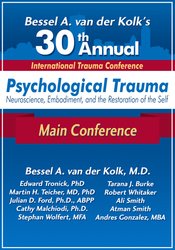
-
Bessel van der Kolk, Tarana Burke, Robert Whitaker, Ed Tronick, Martin Teicher, Julian Ford, Dr. Cathy Malchiodi, Ali Smith, …. – Bessel A. van der Kolk’s 30th Annual Trauma Conference: Main Conference
- Faculty:
- Bessel van der Kolk | Tarana Burke | Robert Whitaker | Ed Tronick | Martin Teicher | Julian Ford | Dr. Cathy Malchiodi | Ali Smith | ….
- Duration:
- 8 Hours 45 Minutes
- Format:
- Audio and Video
- Copyright:
- May 31, 2019
Description
The study of trauma has probably been the single most fertile area in helping to develop a deeper understanding of the relationship among the emotional, cognitive, social and biological forces that shape human development.
Starting with post-traumatic stress disorder (PTSD) in adults and expanding into early attachment and overwhelming attachment and social experiences in childhood (“Developmental Trauma”), this endeavor has elucidated how certain experiences can “set” psychological expectations, bodily experiences and biological selectivity.
When addressing the problems of traumatized people who, in a myriad of ways, continue to react to current experience as a replay of the past, there is a need for therapeutic methods that do not depend exclusively on drugs, talk or understanding. We have learned that most experience is automatically processed on a subcortical level of the brain; i.e., by “unconscious” interpretations that take place outside of conscious awareness. Insight and good intentions have only a limited influence on the operation of these subcortical processes, but synchrony, movement and reparative experiences do.
This conference will present both basic research about the impact of trauma over the life cycle, and a range of effective interventions that are being practiced in clinics, schools, prisons, families, and communities around the world.
Workshops included in this recording:
- Three Decades of Explorations in Trauma: Welcome & Introduction – Bessel A. van der Kolk, MD
- Me Too: At the Intersection of Sexual Violence and Racial Justice— A Fireside Chat with Tarana Burke – Tarana Burke
- Psychiatry Under the Influence: Institutional Corruption, Social Injury and Prescriptions for Reform – Robert Whitaker
- Trust and Meaning Making in Parent-Child Interactions – Edward Tronick, Ph.D.
- The Enduring Neurobiological Effects of Abuse and Neglect – Martin Teicher, MD, Ph.D.
- The Evolution of Developmental Trauma Disorder – Julian Ford, Ph.D, ABPP
- Panel Discussion – Bessel A. van der Kolk, MD, Edward Tronick, Ph.D., Martin Teicher, MD, Ph.D., Julian Ford, Ph.D.
- Expressive Arts as Healing Engagement – Cathy Malchiodi, Ph.D.
- DE-CRUIT: Treating Trauma in Military Veterans through Shakespeare & Science – Stephan Wolfert, MFA
- Dealing with Trauma in the Heart of the Community: Implementing a Comprehensive Yoga Program in a Large Public School System – Ali Smith, Atman Smith, & Andres Gonzalez
PLEASE NOTE: This is the same content from the 30th Annual International Trauma Conference, you cannot receive self-study credit for this program if you have already attended the live workshops.
Handouts
| Manual – Bessel A. van der Kolk’s 30th Annual Trauma Conference (44.2 MB) | 94 Pages | Available after Purchase |
| Handout – DE-CRUIT Publications & Interviews (92.4 KB) | 3 Pages | Available after Purchase |
Outline
Three Decades of Explorations in Trauma: Welcome & Introduction (Bessel A. van der Kolk, MD)
- Viewing trauma through the perspective of neuroscience and military experience
- Political implications of the role of childhood trauma history
- Prevalence and impact of violence and poverty
- Limitations of research and current diagnostic framework for trauma
- Omission of social context and importance of interpersonal connections
Me Too: At the Intersection of Sexual Violence and Racial Justice— A Fireside Chat with Tarana Burke (Tarana Burke)
- Developmental history of the 21st Century program for survivors of poverty and abuse
- Transition into the Me Too movement
- Cultural influences on trauma processing and identification of trauma survivors
- Structuring intervention with vulnerable student populations
- Evolution of Me Too platform – maintaining focus on survivors, training organizers
- Central importance of facilitating a culture shift
Psychiatry Under the Influence: Institutional Corruption, Social Injury and Prescriptions for Reform (Robert Whitaker)
- International research into treatment response and change over time
- Adjusting the psychiatric narrative to reflect current research and effective treatment models
- Impact of DSM-III – disease model and theories of chemical imbalance
- Dramatic expansion of medication interventions
- Iatrogenic responses to psychiatric medications – Star*D research trial
- Tardive Dysphoria and Oppositional Tolerance – increased vulnerability to relapse
Trust and Meaning Making in Parent-Child Interactions (Edward Tronick, PhD)
- Humans as makers of meaning
- Infant development in a volatile, uncertain, complex and ambiguous world
- Developmental stages in the meaning making process – involved psychobiological systems
- Infant self-regulation processes and arousal responses
- Persistent and generalized cardiac reactivity
- Maternal influences on the development of stress response
- Developmental consequences of early chronic adverse effects
- Hemispheric adaptations in the amygdala
The Enduring Neurobiological Effects of Abuse and Neglect (Martin Teicher MD, PhD)
- Risk factors related to childhood abuse and neglect
- Cascade of physiological and neurohumoral responses disrupting brain development
- Sensitive exposure periods
- Neurological expression of early adverse experiences
- Disrupted hemispheric integration – Borderline and Dissociative symptom manifestation
- Heightened response to threat – functional adaptation to malevolent environment
- Fear circuit regions and pathways – amygdala and hippocampus
- Gender and developmental differential response to abuse and neglect
- Reactive Attachment Disorder
- Structural connectivity networks – emotional regulation and self-centered imagery
- Architectural differences in traumatized individuals who do not develop pathology
The Evolution of Developmental Trauma Disorder (Julian Ford, PhD, ABPP)
- Origins of Developmental Trauma Disorder – differentials from other trauma diagnoses
- Central issues in production and expression
- DSM-5 PTSD criteria changes from DSM-IV
- Adaptations to threat environments
- Case example – therapeutic engagement with DTD adolescent
- Effects of developmental trauma on infants and children – relationship disruptions
- Core elements of the DTD diagnosis – attentional, physiological and relational self-regulation
- Contrasts between DTD and PTSD symptom presentations – field trial results
- Future directions of research
- Case example – family intervention
Panel Discussion (Bessel A. van der Kolk, MD; Edward Tronick, PhD; Martin Teicher MD, PhD; Julian Ford, PhD, ABPP)
- Creating a new narrative – functional adaptation to the tribe
- Adapting therapeutic approach to varied settings and individuals
- Understanding cultural and socio-economic influences on trauma experience
- Developing resources and research base for treating childhood trauma
- Social reluctance to acknowledge the impact of developmental trauma
Expressive Arts as Healing Engagement (Cathy Malchiodi, PhD)
- Integration of expressive arts into expressive art therapy
- The “silos” of expressive art
- Current expressive arts programs in health and community settings
- Continuum of expressive arts therapies
- Asset driven approach as opposed to pathology driven interventions
- Limitations of evidence base underlying expressive arts therapy for trauma treatment
- Directions for future research
- Effective implementation of community-based interventions
- Four part model for expressive arts and trauma – movement, sound, storytelling, and silence
- Examples of effective implementation
DE-CRUIT: Treating Trauma in Military Veterans through Shakespeare & Science (Stephan Wolfert, MFA)
- Racial and colonization history related to social trauma
- Origins of DE-CRUIT program
- Impact of Shakespearian themes on personal trauma and symptom expression
- Projective measures for expression and identifying trauma symptomatology
- Parallels between Shakespearian content and PTSD symptoms
- Applying specific passages to dreams and experience
- Pacing, rhythm and grounding
- Research into the efficacy of the DE-CRUIT program
Dealing with Trauma in the Heart of the Community: Implementing a Comprehensive Yoga Program in a Large Public School System (Ali Smith, Atman Smith, and Andres Gonzalez)
- Demonstration of Silent Reflection technique
- History and development of the Holistic Life Foundation
- Top down approach – establishing mindfulness in caretaking adults first
- Centrality of presence and consistency
- Setting boundaries and self-care to create sustainable programs
- Mindful Moment Program – turning detention into meditation
- Outcome measures of reduced suspensions
- Relationship development with gatekeepers
- Reciprocal teaching process
- Mindful Ambassadors Program
- Leveraging the impact of limited resources
- Demonstration of Stress Breath technique
- Managing poorly engaged or motivated students effectively
- Using trauma informed language
- Cultural avenues for facilitating engagement
- Adapting programs to diverse or changing environments
Faculty
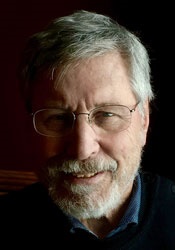
Bessel van der Kolk, M.D. Related seminars and products: 58
Bessel A. van der Kolk, M.D., is a clinician, researcher and teacher in the area of post-traumatic stress. His work integrates developmental, neurobiological, psychodynamic and interpersonal aspects of the impact of trauma and its treatment.
Dr. van der Kolk and his various collaborators have published extensively on the impact of trauma on development, such as dissociative problems, borderline personality and self-mutilation, cognitive development, memory, and the psychobiology of trauma. He has published over 150 peer reviewed scientific articles on such diverse topics as neuroimaging, self-injury, memory, neurofeedback, Developmental Trauma, yoga, theater, and EMDR.
He is founder of the Trauma Center in Brookline, Massachusetts, and President of the Trauma Research Foundation, which promotes clinical, scientific, and educational projects.
His 2014 #1 New York Times best seller, The Body Keeps the Score: Brain, Mind, and Body in the Treatment of Trauma, transforms our understanding of traumatic stress, revealing how it literally rearranges the brain’s wiring – specifically areas dedicated to pleasure, engagement, control, and trust. He shows how these areas can be reactivated through innovative treatments including neurofeedback, somatically based therapies, EMDR, psychodrama, play, yoga, and other therapies.
Dr. van der Kolk is the past president of the International Society for Traumatic Stress Studies, and professor of psychiatry at Boston University Medical School. He regularly teaches at conferences, universities, and hospitals around the world.
Speaker Disclosures:
Financial: Bessel van der Kolk is a professor of psychiatry at the Boston University School of Medicine. He receives a speaking honorarium from PESI, Inc.
Non-financial: Bessel van der Kolk has no relevant non-financial relationship to disclose.

Tarana Burke Related seminars and products: 2
Tarana J. Burke, Founder, “Me Too” movement. Activist and advocate at the intersection of sexual violence and racial justice. Fueled by commitments to interrupt sexual violence and other systemic inequalities disproportionately impacting marginalized people, particularly black women and girls. She is the recipient of the 2018 MIT Media Lab Disobedience Award.
Speaker Disclosures:
Financial: Tarana Burke is an activist and founder of the #MeToo movement.
Non-financial: Tarana Burke has no relevant non-financial relationship to disclose.
Robert Whitaker Related seminars and products: 1
Robert Whitaker, author, Anatomy of an Epidemic and publisher of the web magazine, Mad in America.

Ed Tronick, Ph.D. Related seminars and products: 5
Edward Tronick, PhD, is a developmental and clinical psychologist and is recognized internationally as a researcher on infants, children, and parenting. He developed the Face-to-Face Still-Face Paradigm and videotaped micro-analytic studies of infant en face interactions, pioneered studies of the effects of maternal depression on infants, and carried out numerous cross-cultural studies of infant and child development. His Mutual Regulation Model and Dyadic Expansion of Consciousness hypothesis are widely accepted accounts of social interactions and therapeutic processes. Dr. Tronick is a University Distinguished Professor of Psychology at the University of Massachusetts Boston, is director of the Child Development Unit, a research associate in Newborn Medicine, a lecturer at Harvard Medical School, an associate professor at both the Graduate School of Education and the School of Public Health at Harvard.
Speaker Disclosures:
Financial: Ed Tronick is a professor at the University of Massachusetts Boston. He developed the Still-face paradigm. He developed the Newborn Behavioral Assessment Scale and the Touchpoints Project with T.B. Brazelton; and the NICU Network Neurobehavioral Assessment Scale with Barry Lester. Dr. Tronick receives a speaking honorarium from PESI, Inc.
Non-financial: Ed Tronick is a member of the Boston Psychoanalytic Society and Institute.

Martin Teicher, MD, PhD Related seminars and products: 2
Martin H. Teicher, MD, PhD, Associate Professor of Psychiatry at Harvard Medical School; Director of the Developmental Biopsychiatry Research Program and Laboratory of Developmental Psychopharmacology at McLean Hospital. His research studies range from inquiries into the molecular mechanisms of brain development to brain-imaging studies of the effects of childhood maltreatment on brain development. He is a Callaghan Investigator by NARSAD.
Speaker Disclosures:
Financial: Martin Teicher is the director of the Developmental Biopsychiatry Research Program at McLean Hospital. He is an associate professor at Harvard Medical School. Dr. Teicher receives a speaking honorarium from PESI, Inc.
Non-financial: Martin Teicher is a member of the Scientific Advisory Council of the Juvenile Bipolar Research Foundation.
Julian Ford, Ph.D., ABPP Related seminars and products: 1
Julian D. Ford, Ph.D., ABPP, Professor, department of psychiatry and law, University of Connecticut; President International Society for Traumatic Stress Studies (ISTSS); director, Center for the Treatment of Developmental Trauma Disorders and Center for Trauma Recovery and Juvenile Justice; co-author, Treatment of Complex Trauma & Hijacked by Your Brain: How to Free Yourself when Stress Takes Over; author, Post-traumatic Stress Disorder: Scientific and Professional Dimensions; co-editor, Treating Complex Traumatic Stress Disorders & Treating Complex Traumatic Stress Disorders in Children and Adolescents.
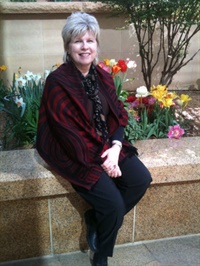
Dr. Cathy Malchiodi, PhD, ATR-BC, LPCC, LPAT, REAT Related seminars and products: 5
Cathy A. Malchiodi, PhD, ATR-BC, LPCC, LPAT, REAT, is a psychologist, expressive arts therapist, and art therapist who has spent over 30 years working with individuals with traumatic stress and studying how the arts support reparation, integration and recovery from trauma. She is the founder and executive director of the Trauma-Informed Practices and Expressive Arts Therapy Institute that trains mental health and health care practitioners in medical, educational, and community settings and assists in disaster relief and humanitarian efforts throughout the world. Cathy has given more than 500 invited presentations in the US, Canada, Europe, Middle East, Asia and Australia and has published numerous articles, chapters, and more than 20 books, including Trauma and Expressive Arts Therapy: Brain, Body and Imagination in the Healing Process, Understanding Children’s Drawings, Handbook of Art Therapy, Creative Arts and Play Therapy for Attachment Problems, and Creative Interventions with Traumatized Children. She has received numerous awards for distinguished service, clinical contributions and lifetime achievements, including honors from the Kennedy Center and Very Special Arts in Washington, DC. A passionate advocate for the role of the arts in health, she is a contributing writer for Psychology Today Online with more than 5 million readers and a visual artist and occasional ukulele and hulusi musician.
Speaker Disclosures:
Financial: Cathy Malchiodi is the founder, director and lead faculty member of the Trauma-Informed Practices and Expressive Arts Therapy Institute. She is one of the founders and president of Art Therapy Without Borders. She is an author and receives royalties. Dr. Malchiodi receives a speaking honorarium from PESI, Inc.
Non-financial: Cathy Malchiodi is a member of the American Art Therapy Association.
Ali Smith Related seminars and products: 1
Ali Smith, Executive director, the Holistic Life Foundation. He has helped develop and pilot yoga and mindfulness programs at public and private schools, drug treatment centers, juvenile detention centers, mental crisis facilities, and retreat centers, mental crisis facilities, and retreat centers, nationally and internationally. Ali has authored a series of children’s books and co-authored several yoga and mindfulness-based curriculum’s as well as developed numerous workshops and trainings.
Atman Smith Related seminars and products: 1
Atman Smith, Co-founder of the Holistic Life Foundation, and director of development. Since 2001, he has been teaching yoga and mindfulness to a diverse population including underserved and high-risk youth in Baltimore City Public Schools, drug treatment centers, wellness centers, and colleges.
Andres Gonzalez Related seminars and products: 1
Andres Gonzalez, MBA, Co-founder and marketing director for the Holistic Life Foundation, Inc. in Baltimore, MD since 2001. He has partnered with John Hopkins Bloomberg School of Health and the Penn State’s Prevention Research Center on a Stress and Relaxation Study and is a published author in the Journal of Children’s Services.
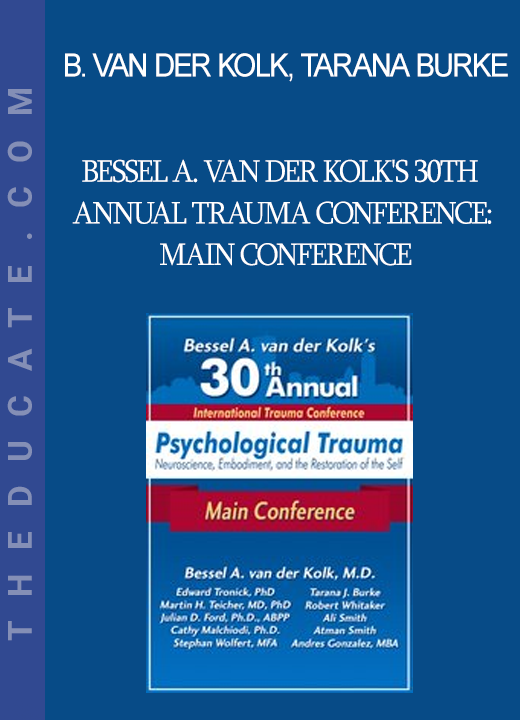


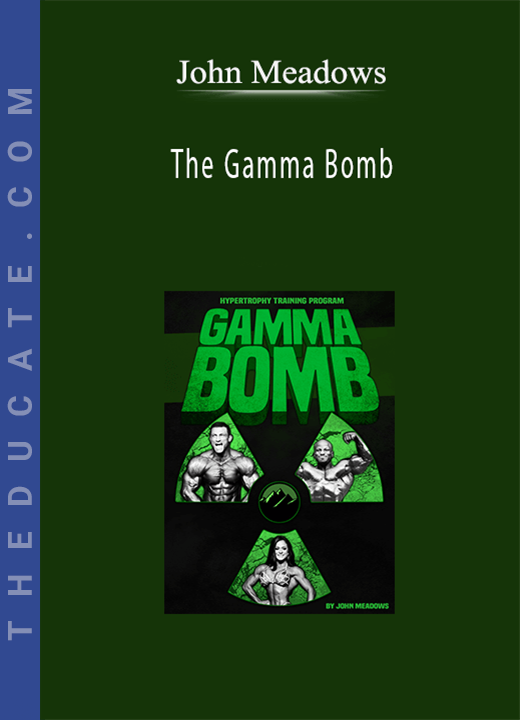

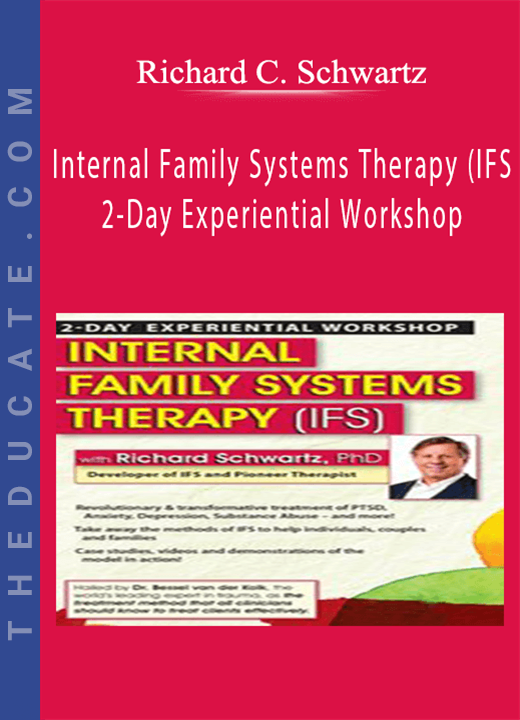
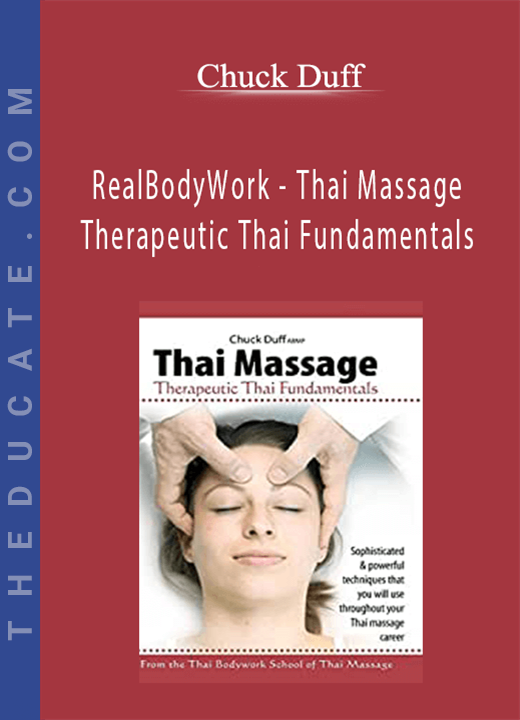
Reviews
There are no reviews yet.